COMMUNITY OF PRACTICE
Anti-trafficking practitioners meet together to reflect and learn
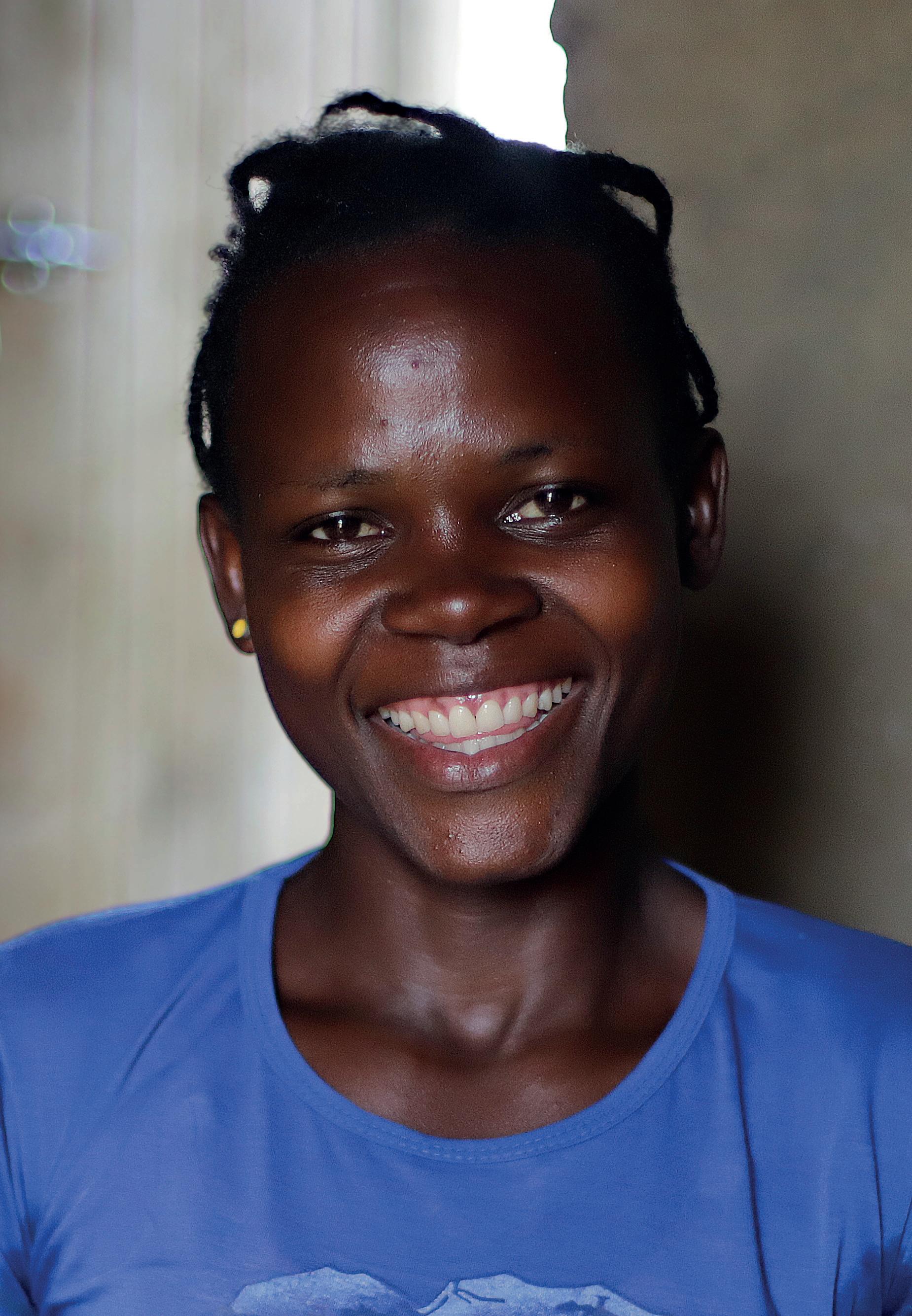
Working against gender-based violence at the Pacific Games
Transforming lives in Rwanda and Burundi
STRENGTH IN COMMUNITY
ACTIVISM
salvationarmy.org.uk/ID Development UK International Development UK International SPRING 2024 [ ISSUE 12 ] DEVELOP
16 DAYS OF
ISSUE 12 ~ SPRING 2024

ANTI-TRAFFICKING LEARNING EXCHANGE
HELPING-HAND 2024
ON EARTH AS IT IS IN HEAVEN
STRENGTH IN COMMUNITY
16 DAYS OF ACTIVISM COMMUNITY OF PRACTICE
05 08 20 06 12 24 07 16 28 FUNDRAISE FOR US
TOGETHER 2024 COMMISSION FOR THE STATUS OF WOMEN
CONTENTS
All photographs are used with the permission of the photographer
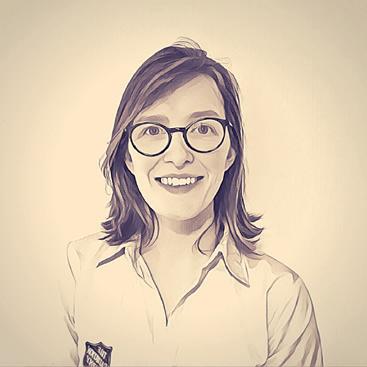
WELCOME TO DEVELOP
A message from our UK Engagement Co-ordinator Hayley Still
Earlier this year I had the opportunity to attend the United Nations’ 68th Commission for the Status of Women (see page 16), and a key theme that emerged from the sessions that I attended was collaboration. The understanding that togetherness is essential to achieving change is something that also comes through in this issue of Develop
This year’s Helping-Hand Appeal, launched in the Autumn 2023 issue of the magazine, is focused on anti-trafficking and emphasises the importance of a joined-up response. The calls to action drive home this necessity, encouraging us that together we can end human trafficking. Get a glimpse at some of the new resources for this appeal on page 6.
In the summer, The Salvation Army United Kingdom and Ireland Territory will gather in Wales for Together 2024, an annual event for everyone connected to The Salvation Army. Read more about this event which will be themed ‘Gyda’n Gilydd – Us Together’ on page 7.
We also share reports from the recent Africa Learning Exchange (page 5) and gathering of the South Asia Community of Practice for Modern Slavery and Human Trafficking Response (page 24), both of which highlight the value of collaborative working, sharing best practice and being open to learning from one another.
On page 8 Major Kerry Coke shares a challenging and inspiring reflection on the Lord’s Prayer, illustrating how it is a radical call to action for Jesus’ followers.
In an article from the Solomon Islands we read of their innovative ‘16 Communities in 16 Days’ campaign which raised awareness about violence against women and girls, and about human trafficking during the recent Pacific Games. Read on page 20 how community collaboration was essential to the project’s implementation and success.
In another example of communities working together to achieve change, on page 12 Francois Nsengimana outlines The Salvation Army’s three-year project aimed at strengthening household resilience through savings groups, functional literacy, and improved nutrition in the Rwanda and Burundi Territory.
Across all projects – with their varying contexts, settings, and objectives – collaboration and togetherness remain essential. Though at times we may feel far from the project locations, and our contexts may differ greatly, may we be encouraged and enriched by the connection we have through our shared humanity, and our desire to see God’s Kingdom on earth as it is in Heaven.
3
SUSTAINABLE DEVELOPMENT GOALS
Throughout this issue of Develop you will see icons alongside the articles referencing the UN Sustainable Development Goal that each article applies to. Here is a refresher of what the goals are.
4
ANTI-TRAFFICKING LEARNING EXCHANGE
The Salvation Army’s Africa Zone recently held their first Modern Slavery and Human Trafficking (MSHT) learning exchange in the Kenya West Territory. The learning exchange was attended by anti-trafficking practitioners and development officers from Mozambique, Uganda and the United Kingdom and Ireland Territories as well as the Africa Modern Slavery and Human Trafficking Zonal Co-ordinator. The purpose was to learn from an anti-trafficking project in Kenya West Territory so that The Salvation Army can improve our practice and increase impact within our responses in our respective contexts.
The learning exchange included visits to community groups where the participants gathered insights into how these groups were preventing trafficking and protecting themselves from harm. One of the groups welcomes survivors of trafficking into their community, advocating for their rights and ensuring they receive love, care and support along their recovery journey. Another community group shared their self-sustainability approaches, outlining
how they would utilise local resources by making soap and selling these to institutions such as hospitals and schools. Participants also visited a school with which
The Salvation Army partners. The school has formed an anti-trafficking club, where pupils raise awareness of child trafficking throughout the school with drama, songs, poetry, dance and arts.
Participants from Kenya West Territory shared key learnings from their project on working with survivors, partnering with key stakeholders and how to sustain a project. They concluded that an impactful project is one that involves various partners in working together and providing tailored support for survivors of trafficking and where communities are empowered to become resilient to trafficking activities.
One of the key outcomes of the learning exchange was participants from both Uganda and Mozambique Territories committing to strengthening their responses to modern slavery and human trafficking so they are effective and impactful for the communities and survivors with whom we journey.

NEWS
NEW HELPING HAND RESOURCES
The focus of Helping-Hand 2024 is anti-trafficking – working through prevention, protection and partnership to bring an end to human trafficking and to support survivors. International Development UK and the Family Ministries department have worked together to create a variety of resources for all ages and settings, to help you and your community to pray, raise money and increase awareness about this issue.
Videos
This year’s appeal videos feature stories from The Salvation Army’s project in Uganda which aims to raise awareness about human trafficking, strengthen community resilience and support survivors, like Jackline.
When Jackline took up a job opportunity of housework in neighbouring Kenya, she was hopeful that this would solve her family’s financial troubles.

However, after working for three months she received no wages and was treated poorly. Jackline managed to escape after the homeowner tried to attack her. Upon returning home to Uganda, The Salvation Army heard of her experience and offered support:
‘They talked to us as a family and we got counselling,’ she says. ‘As well as this, they promised to support us.’ The group runs a savings and loans scheme for the community and Jackline has become one of the treasurers. ‘I feel so happy about this programme. The group has given me so much knowledge about avoiding human trafficking and they’ve helped me save some money. In the future I hope I will have a good amount that will help all of us.’
Prayer Guide
Prayer is one of our most powerful tools as we work to end human trafficking. This prayer guide – which can be used individually, as a family or a small group – explores Scripture and the different ways we can collectively respond to human trafficking.
Bible Study
This new resource reflects on the book of Esther which, though celebrated for its dramatic storyline, is rarely discussed as a tale of human trafficking and exploitation. The study explores this theme and invites us to consider our own purpose and calling.
The Singing Mermaid
Using Julia Donaldson’s book The Singing Mermaid, a new Jump-In session for toddlers and a children’s session have been written specially for this year’s appeal. Both resources introduce the important topic of human trafficking in a child-friendly and sensitive way.
All Helping-Hand 2024 videos and resources can be viewed and downloaded at salvationist.org.uk/helpinghand
6 NEWS
TOGETHER 2024

Together 2024 is a weekend of worship and celebration for everyone linked to The Salvation Army. Taking place on 13 and 14 July at the International Convention Centre Wales, the event includes the annual ordination and commissioning of new Salvation Army officers, and this year will also provide an opportunity to celebrate 150 years of The Salvation Army in Wales.
The event theme is ‘Gyda’n Gilydd – Us Together’, and the creative team is working alongside the Wales Division to make the event an opportunity for delegates to engage, worship and celebrate – together.
Territorial Communications Officer Major Jo Moir explains the plans for the weekend:
‘Together 2024 will build on the success of marketplace and community festivals in previous years. There will be something for everyone, including exciting spaces for children and youth, outdoor activities and live worship as well as creative spaces for conversations, collaboration, prayer and learning.
Alongside the International Staff Band and International Staff Songsters, local musicians, dancers
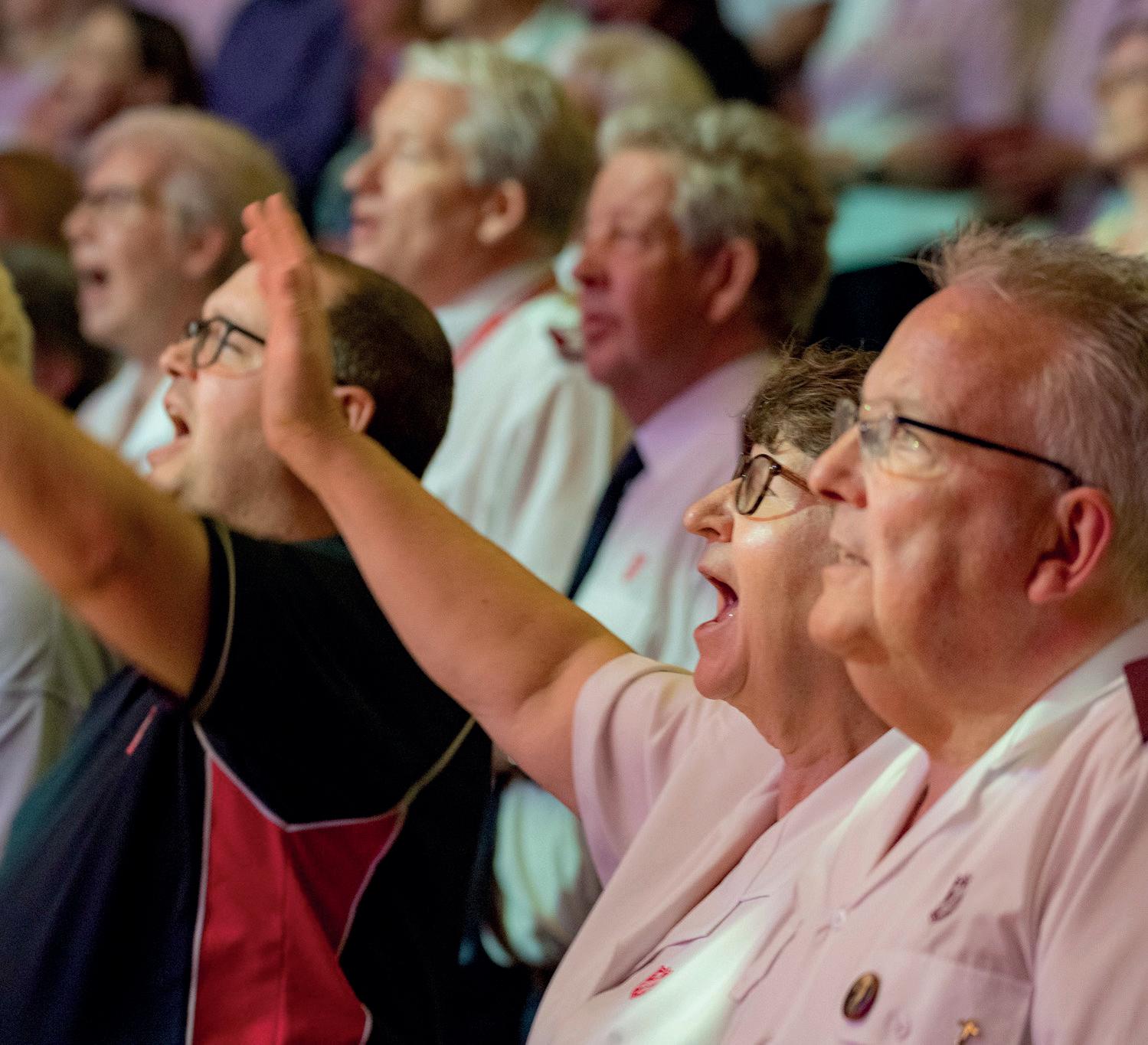
and those who love to worship in other creative ways will lead us in worship over the weekend. New music has been commissioned for the event and there will be opportunities not only to enjoy worship but be part of it too. As ever, prayer will hold a key focus across the weekend; a prayer team is being formed that will be available around the venue.
We have much to celebrate this year. The commissioning of the Defenders of Justice Session will take place on the Sunday morning and we will gather with the cadets’ families and friends for this significant and inspiring moment. And throughout the weekend we will focus on the 150th anniversary of The Salvation Army in Wales, using the theme of God’s Story, Our Story, Your Story across the gatherings, reflections and worship.’
The Salvation Army International Development UK will be part of the Engagement Space throughout the weekend, so please do find us and say hello!
For further information and to book tickets, visit: salvationist.org.uk/events/together
7 NEWS
Photo credit: Andrew King
 Major Kerry Coke
Major Kerry Coke
ON EARTH AS IT IS IN HEAVEN
Major Kerry Coke (Assistant Secretary for Mission for the United Kingdom and Ireland Territory and Chair of the International Programmes and Projects Board) delves into the Lord’s Prayer, contemplating its radical implications for our lives and exploring how partnering in global community development can be a powerful way to embody Jesus’ teachings.
On a baking hot Paraguayan afternoon in early September 2017, I sat in the garden of a woman I’d never met before, who had invited the local Salvation Army home league to come and lead a food and nutrition class in her home. Over the next hour I was to experience what has arguably been the most sacred, Christ-filled experience of my life. Women gathered, children were passed around and fed (it wasn’t clear which children belonged to which mothers!), money-saving recipes were shared, cooking was demonstrated, stories of the love of Jesus were told, health advice was given, and joy was there in abundance. I remember wondering who was helping whom on this occasion, and knowing with every fibre of my being that Heaven was being experienced on earth.
Could it be that when we engage in international development – whether that’s as a financial supporter, a pray-er, an on-the-ground responder or an organiser –we are turning the words of the Lord’s Prayer into a living, breathing, radical, beautiful entity? Could this prayer become a sort of ‘war cry’ for us as we seek to partner with God in turning the world the right way up? Could this prayer, which so many of us learnt to recite as
young children, actually be more subversive than we realise? I think so! And here’s why …
Our Father in Heaven, hallowed be your name
What a great opening! ‘Our Father’ – never have we needed to understand the full picture of ‘family’ more than we do now. Not only are we connected to those with blood ties, but as people with a keen interest in those living around the world, we also know that we are interconnected as family everywhere. We are more than individual people created in the image of God; we are brothers and sisters created in the image of God. When we do all we can to right the wrongs of a particular situation, we do so because we are doing this for our family. That’s powerful and precious. And calling God ‘our Father’ reminds us that not only do we all belong to him, but we are also under his care and within his love. Praise God!
Your Kingdom come, your will be done, on earth as it is in Heaven
Yes, Lord – may it be so! May all that we do help to bring about this change so that the whole family
9

can experience justice, equality, fairness and peace. When we, as The Salvation Army, take our people or our programmes into a particular place that is hurting, we’re often confronting the systems and policies that have forced our ‘family members’ into poverty and despair. We are overturning the world as it is and helping – by the grace of God – to see it become the world as it should be. This prayer is turning out to be far more than a set of words rolled off the tongue, albeit with reverence. This prayer is what we are declaring when we, through the projects we support, distribute emergency vouchers or build toilets or provide education. We are shouting at the top of our voices, with our lungs filled with God-breath, ‘YOUR WILL BE DONE ON EARTH AS IT IS IN HEAVEN!’
Give us today our daily bread
Just enough for today – not storing up so much that I can no longer use it. This speaks to us of sharing and of being content with what we have as much as it does about our feeding programmes for those facing starvation. International Development
begins with each one of us remembering that when we take too much for ourselves, the rest of our family suffer. This line of the prayer reminds us that our work will sometimes force us to have to make tough decisions about the equitable distribution of resources – and we need prayerful support to get that right so that communities can look after themselves. But it’s also a reminder that you and I should look at our own lives and the way we use the resources available to us, and learn when enough is enough.
And forgive us our sins, as we forgive those who sin against us
So much of the work we’re involved in is about forgiveness and reconciliation. Where there are members of our wider family who are weighed down by injustice, we are playing our part in addressing this and promoting reconciliation, inclusion and cohesion. And that’s not just about humankind either. In a place where there is drought and we help people to access life-giving fresh water, we are playing a role in reconciling the
10
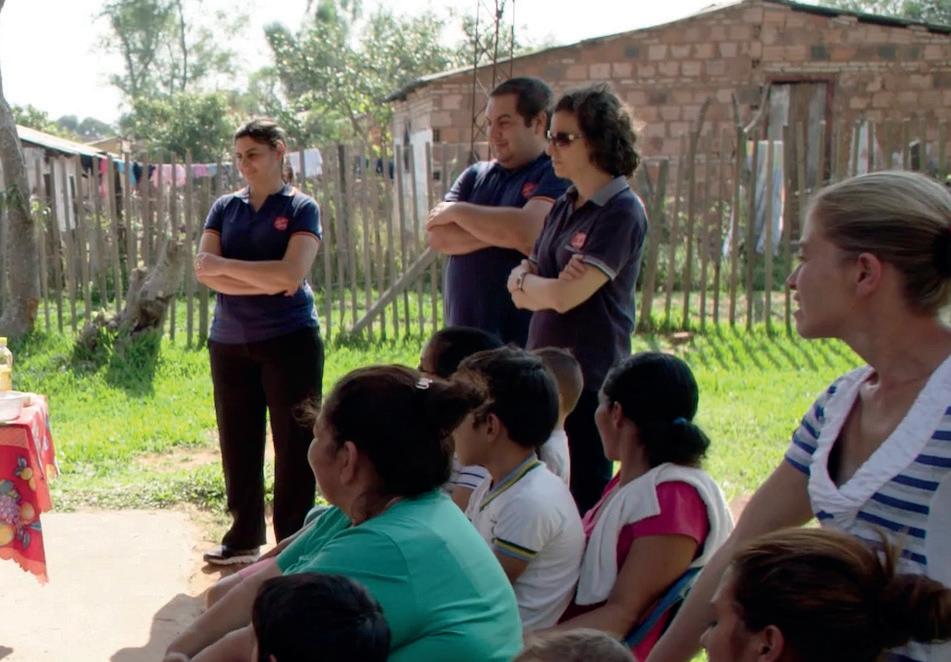
people to the Earth and the Earth to the people. And if we take a step further back and look at what we’re doing, we can see that we’re ultimately trying to reconcile Heaven to Earth. This is not a flimsy concept – this is powerful, prophetic reconciliation in action.
And lead us not into temptation, but deliver us from evil
This carries a double meaning for us in International Development; for those of us at home, we pray that we learn to live with enough, and avoid the trap of taking and keeping too many resources for ourselves. For those of us more involved in the organisation and delivery of development programmes, we ask for your prayers of protection to uphold integrity, accountability, ethical and moral conduct, and transparency. Everything we do we do for the love of God, but none of us is beyond the grip of temptation. Lord, sometimes we need to pray ‘save us from ourselves’ and remember that God is with us in our darkest times, always.
For the Kingdom, the power, and the glory are yours, now and for ever. Amen.
It’s good to remind ourselves that no matter how many plans we make, documents we produce, cake sales we run, prayer meetings we hold – we are not the keepers of this wider family; God alone is. When we engage ourselves in this prophetic reconciliation which we call ‘international development’ we do so as an act of praise and worship to God. It’s God’s Kingdom that we’re helping to build, not ours. Not now. Not ever. That’s the vision we’re working towards – and so be it!
So, will you dare to pray this prayer over our International Development work? Will you hold in your Godly imagination an image of Heaven on earth as I experienced in Paraguay, and pray it into reality? Will you take a fresh look at what we as The Salvation Army, together with our partners, are doing around the world and see the holy subversion that’s going on? Go on … I dare you!
11

Francois
Nsengimana
STRENGTH IN COMMUNITY
The theme of Rwanda and Burundi Territory’s Development Office is ‘Until people’s lives are transformed’. Territorial Development Secretary Francois Nsengimana shares about a project which aims to address this theme through savings groups, functional literacy and improved nutrition.
‘I have been trained on how to be a good leader. I can now confidently lead others and support them along the journey to better their lives.’
Nyirahabineza Epiphanie is chairperson of the Abadahigwa Village Savings and Loans Association (VSLA) group which meets weekly at the Rubuye Corps in Kabasegera, a southern province of Rwanda. As a group member, Nyirahabineza took a loan of 10,000 Rwandan francs (approximately £7) and invested in her grocery business. After repaying the loan and small interest charged, she took a second loan and bought rabbits for rearing. She intends to sell the rabbit kittens for profit.
The benefits of joining the VSLA, however, have extended beyond the financial. Reflecting on what led her to join the group, Nyirahabineza said, ‘I joined to unite with others who wanted to progress their lives by putting our small savings together.’ She went on to share the impact that the group has had: ‘I have learnt so much, including how to grow vegetables. My children can now have a balanced diet and I am more hopeful for the future.’
The Abadahigwa VSLA is one of 30 groups implemented through The Salvation Army’s three-year project which aims to strengthen household resilience through savings groups, functional literacy and improved nutrition. The project is set to connect with 600 households, positively influencing 1,800 direct participants, and collaborating with 15 corps in rural Rwanda.
This project directly works to address The Salvation Army Rwanda and Burundi Territory’s community development goal of ending poverty in all its forms. The territory chose to work with the communities of Kamonyi and Musanze as research showed a high level of deep poverty and undernourishment amongst their populations.
The first year of the project focused on establishing VSLAs and implementing training for members. The saving groups are self-managed and independent and therefore reliant on their members’ willingness to save money together. The role of The Salvation Army is to assist with group formation and to provide financial
13
I have been trained on how to be a good leader. I can now confidently lead others and support them along the journey to better their lives. “ ”

literacy, business mentorship, and training on entrepreneurship and enterprise management. With this access to financial services, the participants will be able to develop sustainable livelihoods and participate in developing their communities by investing in different sectors which are essential for general economic growth and sustainable development.
As the project moves into its second year, the focus is on growing and strengthening the VSLAs. Participants are encouraged to use the savings made during the first year to establish incomegenerating activities. Training in good nutrition, vegetable production and animal farming as a means of addressing malnutrition is also introduced. Through the Farmer Field Schools initiative, individuals gain hands-on experience in improved farming methods and receive seeds to use at home. This year is dedicated to ensuring participants gain tangible skills and resources, to boost their livelihoods.
Alphonsine Mukankusi shared her experience of participating in the project:
‘Family life had not been easy. My husband left us two years ago and since then we struggled to find money, food and school fees for my children. I was living with no hope, asking myself how I will be able to educate my children. I started looking for casual work in the area but it was very difficult.
‘Grains and meat are in high demand in our area and people come from the capital city to find them and offer good money. This was a big opportunity in our community. However, I had nothing to start a small business with. I was able to borrow a little money from an acquaintance and started buying small quantities of sorghum and maize which I resold in the market.
‘When The Salvation Army brought the saving groups, I felt very lucky because I found a place where I can borrow money for my business and
14
repay it in a friendly and easy way. From that time I decided to expand my business of buying grains. I also started another one buying goats, rearing them for a few months and then selling them at an increased price.
‘Nowadays, I no longer struggle like before, thanks to being part of the savings group. I can find school fees and materials for my children and also have something to eat.
‘I am a regular member and attend all project activities. I also contribute by providing advice to my fellow members. My relationships with neighbours have improved as we meet weekly in the savings group and exchange ideas. In addition, my confidence has been boosted as I see many blessings of being together in a group with my neighbours.
‘I hope my business will be sustainable so that I will keep raising my children till they become mature and able to survive.’
During the third year of the project, the priorities will be creating new partnerships and broadening
the reach of the VSLAs. Establishing the long-term sustainability of the VSLAs and ensuring their ongoing impact within the communities are key targets for this final year.
This project also aims to address the issue of human trafficking and modern slavery. Working together with other stakeholders, the aim is to prevent trafficking by limiting the push factors that lead to exploitation such as poverty and job insecurity. Membership in VSLAs and life skills training are essential elements to ensuring people can grow their income and reduce their vulnerability to trafficking.
This project is multifaceted, and its impact goes beyond that which is listed in the aims and objectives. It is bringing people together, strengthening community bonds, reducing vulnerability to malnutrition and human trafficking, and giving people access to the tools and resources they need to lift themselves out of poverty. Ultimately, these add up to hope: hope for a better life. As Nyirahabineza summarises, ‘I can now dream of a better life for myself and my children.’


Union 2024
Photo credit: European
Hayley Still
COMMISSION FOR THE STATUS OF WOMEN
Hayley Still (UK Engagement Co-ordinator, International Development UK) shares her experience at the 68th Commission for the Status of Women and reflects on the key themes that emerged.
‘The world continues to be a dangerous place for women and girls, whether at home, work, school or play; in times of peace and times of conflict; or when disaster strikes, women and girls cannot continue to bear the brunt of wars waged by men …. In the face of these dangers, we confront another stark reality, our efforts and investments to prevent genderbased violence have not been sufficient to turn the tide.’
This was part of the message from UN Deputy Secretary-General Amina Mohammed in one of the early high-level side events at the 68th Commission for the Status of Women (CSW68).
From 11-22 March 2024, CSW68 convened in New York under the theme of ‘Accelerating the achievement of gender equality and the empowerment of all women and girls by addressing poverty and strengthening institutions and financing with a gender perspective’. This annual two-week event is the United Nations’ largest annual gathering on gender equality and women’s empowerment.
CSW68 brought together government officials and diplomats from UN member states, representatives from non-governmental organisations and civil society, and United Nations agencies such as UN Women and UNICEF. Alongside highlevel ministerial meetings, UN member states and intergovernmental organisations held approximately 270 side events, while the NGO CSW68 Forum encompassed over 760 parallel events.
Speaking on behalf of the Group of Friends for the Elimination of Violence against Women and Girls, Ms Mohammed went on to offer hope, highlighting their EU-funded ‘Spotlight Initiative’ which has made targeted investments of more than $90 million for the prevention of violence against women and girls.
A key takeaway from Ms Mohammed’s speech, and one which would be echoed throughout the following two weeks, was that collaboration was essential to achieving lasting change. ‘Working together,’ she asserted, was necessary to deliver a
17
‘better, healthier and more peaceful world in which every girl and woman has the opportunity to thrive and survive.’
As a member of the International Social Justice Commission’s Women’s Group, I had the privilege of attending the first week of CSW68 as part of The Salvation Army’s delegation which included representatives from around the world. With hundreds of sessions to choose from, and to gain as much from the event as possible, our delegation split up and we each attended sessions across the week which coincided with our own areas of interest and work.
In addition to the aforementioned side event hosted by the Group of Friends, I also attended panels, presentations and forums on a variety of topics such as the role of media in preventing violence against women, innovative solutions for women’s social and economic inclusion, Nordic models for gender equality, social protection and digital innovation in Malawi, the role of men in preventing gender-based violence, and addressing technology-facilitated gender-based violence, amongst others.
Sessions which covered the growing proliferation of technology-facilitated gender-based violence, and the role of media in preventing violence against women, both acknowledged the importance of improving education to increase awareness and understanding of these forms of violence as well as the necessity of law reform to address them.
‘New technological developments,’ as stated within the conclusions of CSW68, ‘can perpetuate existing patterns of poverty, inequality, discrimination and all forms of violence’, and the recommendation was therefore made that a ‘gender-responsive approach should be taken in the design, development, deployment and use of digital technologies-related policies with full respect for human rights.’
Key learning that emerged from multiple sessions focused on the issue of violence against women and girls, was that men and boys, as
both agents and beneficiaries of change, had an important part to play. This includes engaging with male perpetrators to identify risk factors, understanding their own experience of violence, challenging harmful perceptions of masculinity, and transforming attitudes and structures which normalise violence.
In a session which brought together key figures in advocacy for gender equality, including representatives from ombuds offices (responsible for impartial public advocacy), governmental bodies and civil society, collaboration once again emerged as a key theme with particular reference in this case to institutions. The learning that came out of the partnerships represented was the openness to listening to and acting upon critical yet constructive feedback. It was also evident that institutions must be dynamic, having the initiative and means to be responsive as society changes.
In discussing the key challenges which disproportionately affect women and girls, many sessions emphasised the importance of understanding diverse experiences and addressing gaps in current knowledge. As long as we have a narrow selection of voices contributing to the discussion, we will have a narrow understanding of the issues and limited capacity to respond effectively. Speaking particularly about youth participation, Dilanaz Güler of Türkiye noted the importance of meaningful participation. She said, ‘Ensure that youth have a say at the table, that they have a seat, but also have a microphone at that seat. We’re not just observers.’
These reflections only begin to capture the learning that I will take away from this event. It was an invaluable opportunity to attend a diverse range of sessions which covered the various elements that are needed in the pursuit of gender equality, such as local, national and international NGOs, governments, civil society, and, crucially, the voice of those with lived experience. CSW68 afforded me insights into both the shaping of policies at national level as well as the detail of community projects including those which
18
promote economic inclusion for women, from accessing non-traditional livelihoods in Colombia to rural banking in India.
I am also thankful for the time I had to learn from people who are taking practical action to create more just societies where they live, who are pushing back against oppressive structures to pursue gender equality, and who are using their skills, roles, passions and giftings to advocate for women and girls.
Much of the learning that I have taken away comes down to collaboration, and as part of The Salvation Army I recognise that our network is one of our key assets as we exist in the local, national

and international spheres. It is important, though, that whilst we utilise our internal connections, we also continue to strengthen our external partnerships. In the pursuit of gender equality, working in silo will not work.
UN Secretary-General António Guterres made the comment that ‘Nothing would be more important for gender equality … if religious leaders of all kinds would assume leadership in this regard’. Indeed, he is right. Religious organisations have a powerful role to play in challenging violence against women and in advocating for gender equality, and it is my prayer that The Salvation Army will lead the charge.

Major Robert Evans
16 DAYS OF ACTIVISM
In November 2023, the 16 Days of Activism Against Gender-based Violence coincided with the Pacific Games being hosted by Solomon Islands. Major Robert Evans reports on how The Salvation Army in the Solomon Islands District responded with a 16-day community-based awareness campaign.
The increased prevalence of sexual violence and human trafficking during international sporting events is well documented. With thousands of international visitors expected in Honiara for the Pacific Games, The Salvation Army in Solomon Islands recognised the unique opportunity to reach a large audience at a time of increased vulnerability.
Unfortunately, the reallocation of government and community resources towards hosting the Pacific Games meant this opportunity and vulnerability was at risk of being overshadowed. Therefore, during the lead-up to the Pacific Games, The Salvation Army Solomon Islands decided to focus its attention and resources on ensuring that human trafficking and the 16 Days of Activism received the attention these social justice issues demand in the Solomon Islands.
To this end, the District Team set to work early in the year to plan a campaign that would embrace the opportunities and target the vulnerabilities presented during this regional event. The
proximity of the main sporting stadiums to Burns Creek Settlement, the early closure of all schools, and the existing high rates of domestic violence and other related social issues provided the context for the chosen location and programme for The Salvation Army’s 16 Communities in 16 Days campaign.
The Salvation Army has a strong presence in Burns Creek and is where Auxiliary-Captain Wency Ramo’oroa lives with his family. He used his position as a community chief to identify 16 communities within Burns Creek Settlement that would welcome and benefit from the campaign.
The campaign used resources created by A21 (a global anti-trafficking NGO) for their Early Childhood Prevention Programme which use interactive stories and activities to teach children to identify safe and unsafe people and distinguish between safe and unsafe touch.
A team of volunteers were recruited from Honiara Corps and Hope Trust, a local NGO that builds
21

community awareness to prevent and respond to the exploitation and abuse of children. All the volunteers were trained in The Salvation Army’s Child Protection Policy, Trauma Informed Care, and the A21 Early Childhood Prevention programme in preparation for the 16 Communities in 16 Days campaign. Each of the volunteers also obtained a police clearance to ensure the team was staffed with ‘safe people’. The team was divided into groups of six to eight members who were rostered over the 16 days, with each volunteer assigned to two sessions. However, some volunteers enthusiastically chose to participate over multiple days!
After much planning and anticipation, the 16 Communities in 16 Days campaign launched on 25 November to coincide with the 16 Days of Activism Against Gender-based Violence which begins on the International Day for the Elimination of Violence against Women and ran until Human Rights Day on 10 December.
The programme was well attended and highly valued by all the communities, evoking
confronting stories of vulnerability and abuse, while facilitating encouraging moments of empowerment as the participants applied the lessons to their context.
During the daily debrief sessions, team members shared stories which formed the basis of a comprehensive special report, highlighting key learnings and outcomes from this pilot programme for The Salvation Army Solomon Islands District. Below is a sample of the stories featured in this report:
‘Now the young ones know who is safe and unsafe for them. We as parents need to be vigilant. My evaluation is that parents have been living in ignorance and have been negligent in their practice of keeping their children safe. Our grandparents and parents used to teach us about this, but when we moved to the urban area we started to neglect this and our own languages. We forgot about our culture. We know what is right and what is wrong and what is safe and unsafe.’ (Webster)
22
‘Pre-teens were part of my small group. They were excited to know about what is happening in regard to awareness … I think what we are doing here now is helping them to know what to do as they grow older. After today, the young people now will have the confidence to report [unsafe behaviour] or speak to their parents. The culture suppresses them, suppresses their voice and their rights.’ (Alick)
‘When we discussed … one of the lessons I have learnt is, in our culture, we grow up with the mindset and mentality … that as a girl … I have been told that you mustn’t do anything that can tarnish your name. In our programme, I hadn’t thought about that before, but today it came back to my mind. If anything happens to us we don’t tell anyone because that will then tarnish our name. If a girl has a bad name in the community or village, then she is one that no one wants to marry, because her name is tarnished. For girls, now they won’t say anything because of what they have been told by their parents. We must not be silent any more.’ (Elizabeth)
The 16 Communities in 16 Days campaign reached a total of 598 participants (325 girls, 273 boys) across Burns Creek. Beyond the 16 Days of Activism, this programme was taken to other communities outside of Honiara in the provinces during our district Easter Campaign including Russell Islands in Central Province, Fouele in South Malaita, Gateway in North Malaita, Moscom in East Are’are, Rauai in West Kwara’ae and Bonosi in Western Province.
At the end of the campaign, the key outcomes, obstacles and opportunities were identified. It was evident that awareness and comprehension of the issues had increased, and important conversations had been facilitated. We are thankful to everyone who collaborated on this campaign and worked tirelessly to ensure its success. Going forward, The Salvation Army Solomon Islands will continue to find ways to highlight the issues of human trafficking and violence against women and girls with communities.

23
 Photo credit: Abimelech Imran
Photo credit: Abimelech Imran
Major Anugrah Masih
COMMUNITY OF PRACTICE
Major Anugrah Masih (Zonal Modern Slavery and Human Trafficking Response Co-ordinator, South Asia) reports on the South Asia Modern Slavery and Human Trafficking Response Community of Practice workshop in which anti-trafficking practitioners from The Salvation Army gathered to reflect, share and learn from one another, and discuss the organisation’s global response to the issue of modern slavery and human trafficking.
The Salvation Army’s International Positional Statement on Modern Slavery and Human Trafficking (MSHT) states, ‘Modern slavery and human trafficking needs to be stopped. Everyone has the responsibility, both individuals and institutions, to work for the liberation of those who have been subjected to slavery and trafficking. Legal and social mechanisms to stop slavery and trafficking must be established and those involved held to account.’
As followers of Jesus Christ, Salvationists believe that all human beings have been created in the image of God (Genesis 1:26) and are equally valued and respected, and it is therefore our responsibility to care for ourselves as well as our neighbours. To this end, The Salvation Army has been responding to modern slavery and human trafficking since the 1880s, and in September 2020 launched the new International Fight for Freedom Strategy.
The mission of the Fight for Freedom Strategy is to create, implement and ensure a strong and
sustainable MSHT response in every Salvation Army territory, command, region and community, to strengthen its response around the eight identified actions areas: Prayer, Prevention, Protection, Partnerships, Participation, Policy, Prosecution and Proof.
Communities of Practice (CoP) have been established as part of The Salvation Army’s international response to MSHT. Academically, CoP were formalised as a learning system defined as ‘a group of people who share a concern or a passion for something they do and learn how to do it better as they interact regularly’.
There are three essential components of Communities of Practice:
1) A commitment to a shared ‘domain’ (in this case it is combating modern slavery and human trafficking).
2) A community of members for each ‘domain’ who build relationships to share with and learn from each other and engage in shared activities.
25

3) Members should be practitioners who can develop shared resources, tools, experiences, and ways of handling problems.
The South Asia MSHTR CoP was established in 2018 and, since its launch in September 2020, pursues the mission of the Fight for Freedom Strategy. Meeting virtually on a quarterly basis, the CoP is composed of a Zonal Modern Slavery and Human Trafficking Response Co-ordinator, Community of Practice Manager and 12 National/ Territorial Contact Persons (NCPs) from India, Pakistan, Bangladesh, Sri Lanka, Middle East, Nepal and Bangladesh. NCPs are point persons to respond to modern slavery and human trafficking in their respective territories.
On its sharing and learning platform, each CoP member brings innovative ideas, skills, experiences, knowledge and research to support the collective mission of combating modern slavery. In addition, the International Modern Slavery and Human Trafficking team support
with technical guidance as well as training on specific areas.
From 22-25 February 2024, the South Asia CoP gathered in Colombo, Sri Lanka, for a workshop under the theme of ‘A heart to empathise with others’ based on 1 Peter 3:8. The group of 25 delegates included all South Asia NCPs, zonal co-ordinators from South Africa and South Pacific East Asia, as well as representatives from International Headquarters and territorial development offices. We were also very thankful to our international leaders of South Asia as well as Territorial Leaders of Sri Lanka, and all those who supported in the planning, approval and logistics of the gathering.
In his keynote address to delegates, Colonel Nihal Hettiarachchi, Territorial Commander of the Sri Lanka Territory, set the tone for the event, encouraging us to play our part, not only in contributing to the workshop but also as we take our learning back to our communities. He said:
‘We are not powerless witnesses; we are agents of change.
26
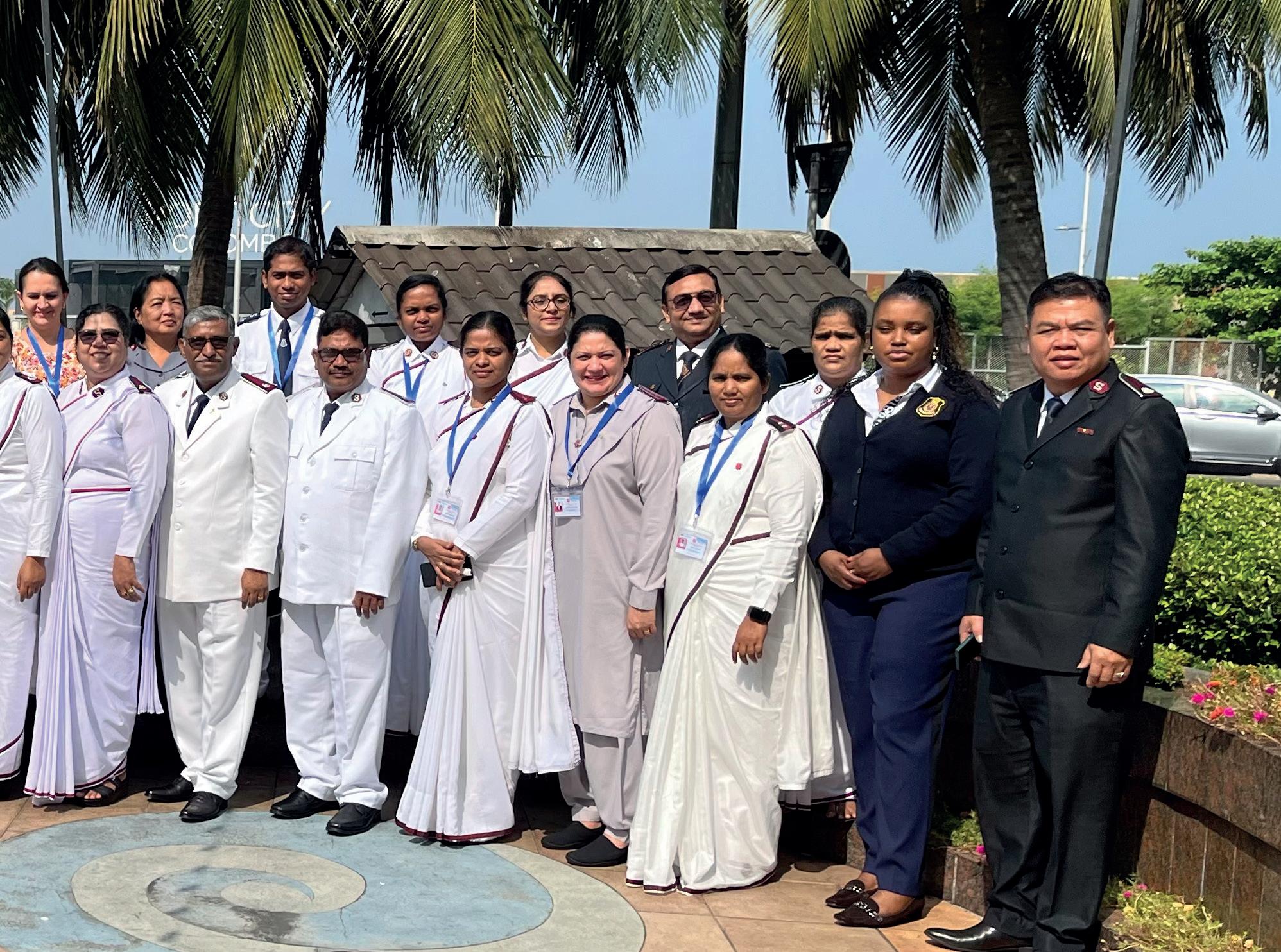
‘Each one of us has a role to play in combating human trafficking and protecting the vulnerable. This workshop catalyses collaboration, innovation and advocacy. It is a platform for sharing knowledge, best practices, and strategies for prevention, intervention and prosecution.
‘It is a forum for amplifying the voices of survivors and ensuring that their stories are heard and their rights upheld. But let us be clear: our work does not end with this workshop. We must go back to our communities and our appointments and administrations with renewed determination and a steadfast commitment to action.’
The main objective of the workshop was educating, equipping and training our CoP on different forms of modern slavery in both the South Asia and global context. We also covered topics such as emerging trends in MSHT, trauma-informed care, survivor inclusion, culture of care, ethical storytelling, child protection in MSHT, and integrating with intersecting internal and external departments and organisations.
Captain Sheetal Rani, Secretary for Social and Anti-Trafficking of the India National Office Kolkata, shared her thoughts about the event:
‘All the topics of this workshop were very interesting and useful for me. The most interesting topic was Modern Slavery and Human Trafficking in South Asia [which was] taught practically … [and] was very relevant to the present situation.’
We recognised that passion and people (especially young people) are two of the valuable resources we have as we work to combat modern slavery. Therefore, our next step is to develop a connection between our CoP and Youth, Social Justice, Spiritual Life Development, and Women’s Ministries departments to respond to modern slavery and human trafficking. We are also encouraging the active inclusion of survivors in all eight identified action areas.
Kindly uphold the South Asia Community of Practice in your prayers so that we may be able to contribute in minimising modern slavery in South Asia.
27
Photo credit: Abimelech Imran
Can you help us to raise funds for our international community development projects?
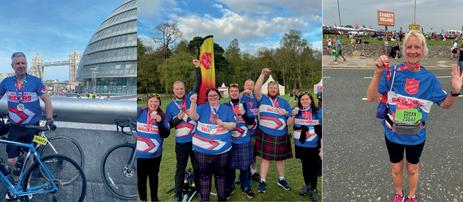
 Amy Plummer
Amy Plummer
FUNDRAISE FOR THE SALVATION ARMY
Fundraising events are an exciting and fun opportunity for individuals of all ages and abilities to contribute valuable funds to support The Salvation Army’s mission.
Whether you’re aiming to accomplish a lifelong goal, physically challenge yourself, commemorate a special occasion, or unite your community in supporting the most vulnerable members of society, your fundraising efforts will significantly impact our work. There are countless ways to fundraise for The Salvation Army.
Are you a passionate runner or walker? Participate in community events such as the Kilt Walk in Scotland, the London Marathon, or various local races ranging from 5ks to full marathons. Alternatively, consider tackling a hiking challenge this summer, whether it’s scaling Snowden, conquering the Yorkshire Three Peaks, or embarking on an international trek.
Are you a cycling enthusiast? Sign up for a local cycling event or create your own challenge. Tackle the iconic 1,000-mile Land’s End to John O’Groats ride, or maybe challenge yourself to ride 20 miles each day for a month.
Are you a football fan? Join our Goals for Good campaign this summer, donning your football kit or hosting a viewing party to raise funds.
Are you a thrill-seeker? Take to the skies with our
Jump for Freedom campaign and skydive to raise vital funds for our anti-modern slavery work to support survivors.
Or do you have any hobbies or skills that can be put to use? Host a bake sale, tea party, car boot sale, or craft homemade jewellery to sell. Alternatively, request donations in lieu of gifts for your birthday, wedding or anniversary. Regardless of your interests or skills, you can use them to fundraise for The Salvation Army’s essential work! Every pound raised is crucial in enabling us to continue providing vital services to vulnerable individuals in our communities.
Whichever path you choose, we’ll be here to support you every step of the way. From providing a fundraising pack brimming with tips and materials to offering administrative assistance, we’re committed to ensuring you have the most fulfilling fundraising experience possible.
By joining #TeamSallyArmy, you’ll be making a tangible difference in the lives of society’s most vulnerable members, offering hope where it’s needed most.
Would you like to learn more about our events? Visit www.salvationarmy.org.uk/fundraise-us Alternatively, contact the team directly at challenge@salvationarmy.org.uk or call us on 020 7367 4819
28
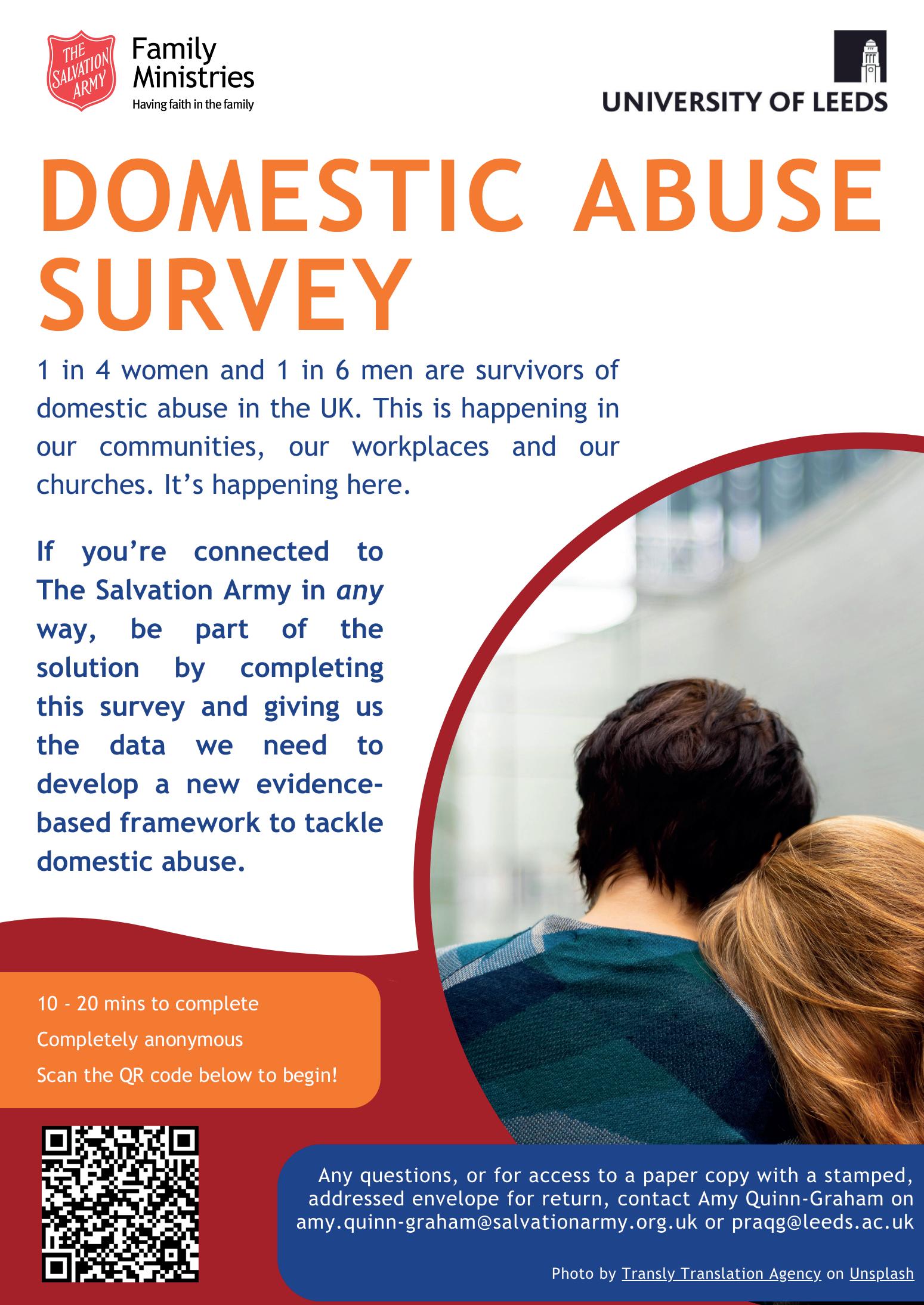
I want to make a donation

detach here URN OFFICE USE ONLY TITLE: FIRST NAME: SURNAME: ADDRESS: POST CODE: TEL NO: EMAIL: Cheques should be made payable to The Salvation Army Cheque Fill in the details below Credit Card
charge my card with the following amount: Type of card (unable to accept Amex): Card number: (Maestro only) Valid from: Expiry date: Security code: Cardholder’s Signature: Boost your donation by 25p of Gift Aid for every £1 you donate. In order to Gift Aid your donation you must tick the box below: I want to Gift Aid my donation and any donations I make in the future or have made in the past 4 years. Signature: I am a UK taxpayer and understand that if I pay less Income Tax and/or Capital Gains Tax than the amount of Gift Aid claimed on all my donations in that tax year it is my responsibility to pay any difference. Please notify The Salvation Army if you: • want to cancel this declaration • change your name or home address • no longer pay sufficient tax on your income and/or capital gains If you pay Income Tax at the higher or additional rate and want to receive the additional tax relief due to you, you must include all your Gift Aid donations on your Self-Assessment tax return or ask HM Revenue and Customs to adjust your tax code. THQ URN Date Initials Bank/Building Society Account Number: Branch Sort Code: Preferred payment date: First of month Last work day Direct Debit Fill in the details below Please indicate how often you would like to pay: Twice yearly Monthly To The Manager Name and postal address of your Bank/Building Society: BANK/BUILDING SOCIETY: ADDRESS: ADDRESS (CONT): POSTCODE: NAME(S) OF ACCOUNT HOLDER(S): Reference Number (Bank use only):
to your Bank/Building Society. Please pay The Salvation Army Trustee Company Ltd Direct Debits from the account detailed in this instruction subject to the safeguard assumed by the Direct Debit Guarantee. I understand that this instruction may remain with The Salvation Army Trusted Company Ltd and, if so, details will be passed electronically to my Bank/Building Society.
Date: Please pay The Salvation Army the following amount:
tick which area of work you would like to support: Anti-trafficking Clean Water Emergency Response Food Security Women and Girls
it’s most needed
Please
Instruction
Signature:
Please
Wherever
giving page
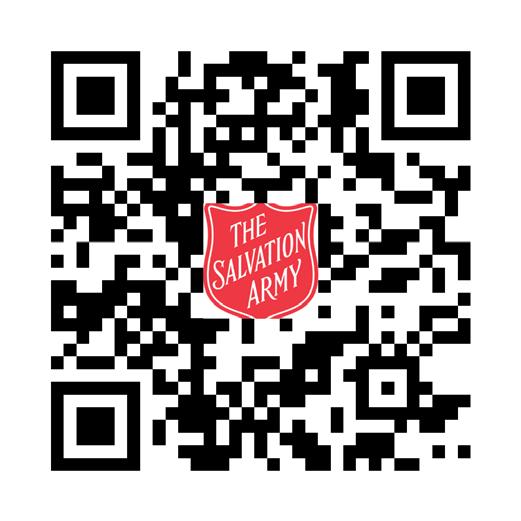
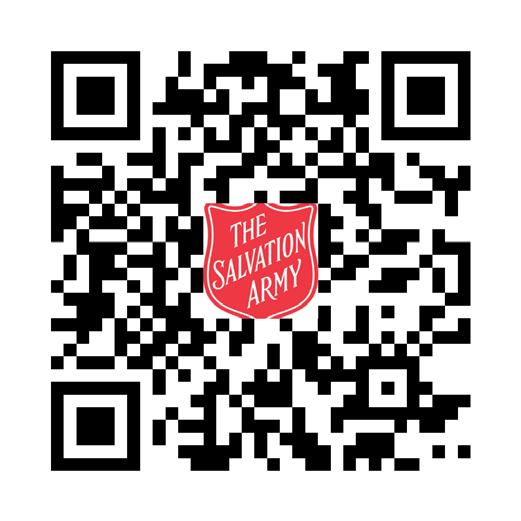
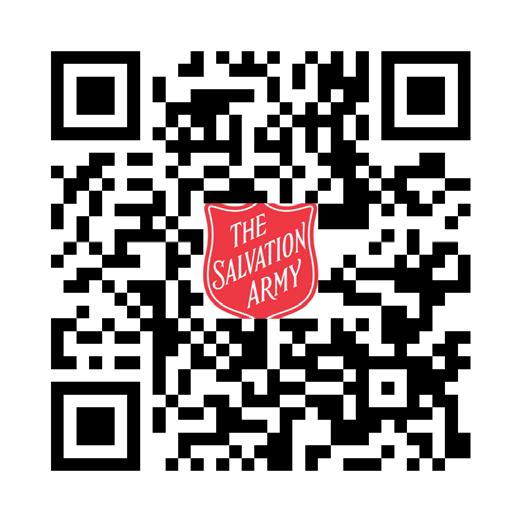
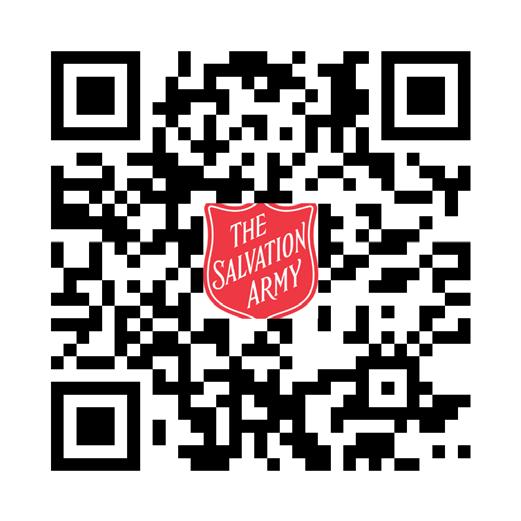
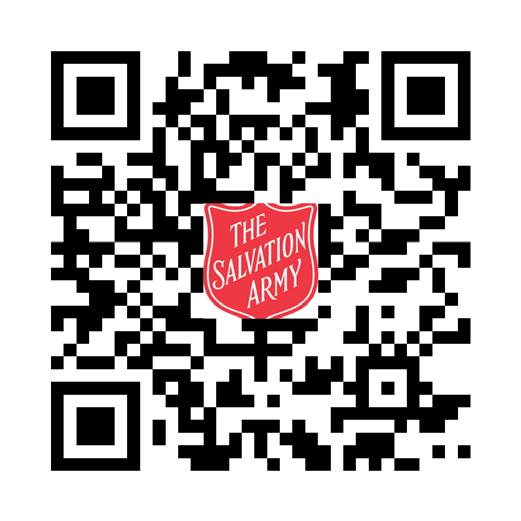
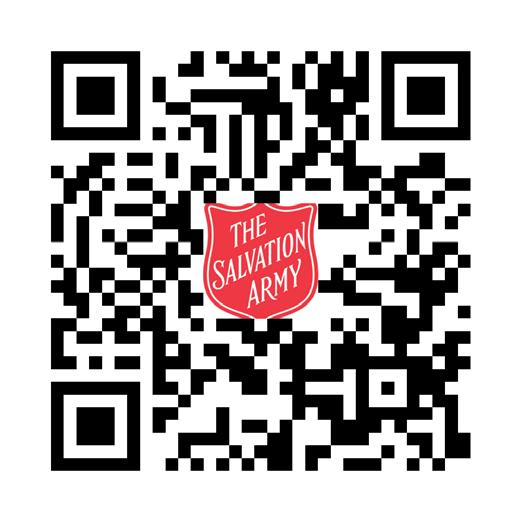
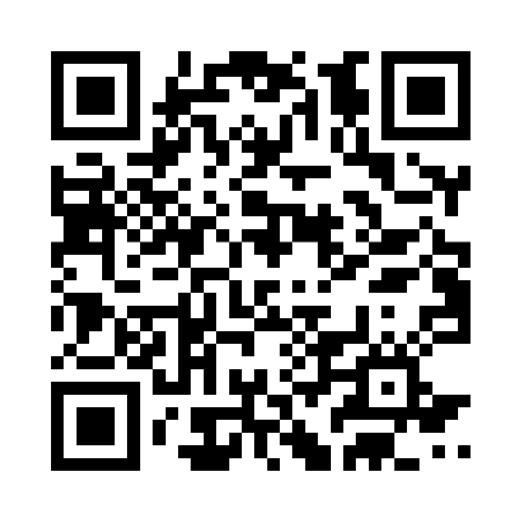
theme’s
AntiTrafficking Emergency Response Women and Girls HelpingHand 2024 Clean Water Food Security General Giving
Scan the QR codes here to go directly to each
salvationarmy.org.uk/ID @salvationarmyid @salvationarmyid @thesalvationarmyid Connect with us: International Development UK The Salvation Army Territorial Headquarters 1 Champion Park London, SE5 8FJ 020 7367 4777 @salvationarmyid id@salvationarmy.org.uk The Salvation Army is a church and registered charity in England (214779), Wales (214779), Scotland (SC009359) and the Republic of Ireland (CHY6399)








 Major Kerry Coke
Major Kerry Coke










 Photo credit: Abimelech Imran
Photo credit: Abimelech Imran



 Amy Plummer
Amy Plummer


















